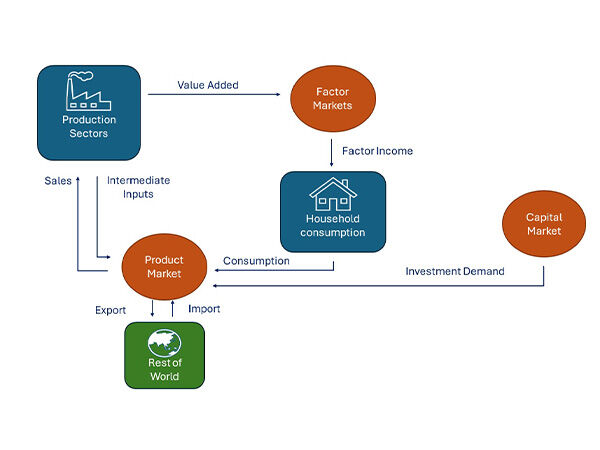
Blog Article

Lead BCU Researchers: Erez Yerushalmi
Project Duration: September 2023 – August 2024
(Lead partner) RAND Europe: Marco Hafner and Sana Zakaria
Funder
This project is funded as part of the DHSC-funded Fleming Fund and involves RAND Europe alongside WOAH, IHME/GRAM, CGD, and World Bank.
Read final report here
The problem
Antimicrobial resistance (AMR) persists as a significant global threat to public health, with an estimated 4.95 million deaths attributed to bacterial AMR in 2019 alone. Inaction on this issue could lead to a staggering 10 million deaths annually by 2050. Recognized as a formidable challenge, AMR jeopardizes not only global health but also food and economic security. The complexities surrounding antibiotic use in livestock production are manifold. While antibiotics are crucial for ensuring safe and affordable food production and maintaining animal health standards, their overuse in animals can foster the development of resistant pathogens, which pose threats to both animal and human health. Furthermore, the practice of employing antimicrobials for animal growth exacerbates these challenges.
Interest in understanding the impact of AMR on livestock has surged. Evidence suggests that controlling AMR in dairy, livestock, poultry production, and aquaculture is imperative, as food-producing animals serve as primary reservoirs for zoonotic diseases. The rise of AMR can compromise the effectiveness of existing antimicrobials, leading to increased treatment failures, heightened infection severity, and a greater reliance on potentially more costly or riskier alternatives. Inappropriate antimicrobial usage creates an environment conducive to the survival of resistant bacterial strains and the transmission of resistance genes. Additionally, food-producing animals exposed to antimicrobials can develop resistance to these therapeutic agents.
Efforts to combat AMR demand further research to support the implementation of comprehensive One Health strategies, interventions, and policies across diverse settings. Such research outcomes will bolster national and regional endeavours aimed at addressing AMR effectively.
The project
The focus of this work is on understanding the economics of AMR and antimicrobial use in livestock. To address these key objectives, we will undertake a mix of different research methods including literature reviews, expert interviews and mathematical modelling.
The modelling work will generate new evidence on the economic pathways and burden of AMR in the food animal production, whilst the literature scoping exercise will provide broad insights on:
- The mechanisms of AMR in livestock
- The transmission between livestock and humans
- The current practices around antimicrobial use
- The perceived threat and benefit of antimicrobial use and AMR in the livestock community
- The value and feasibility of interventions to mitigate the effects of AMR and prevent antimicrobial use.
Economic impact is considered through the lens of consumer welfare, GDP, changes in tax income, household income and trade (see figure below).
Birmingham City University (BCU)’s role
BCU is developing a dynamic, multi-region, computable general equilibrium (DCGE) model which is integrated into RAND Europe’s micro-founded Dynamic Disease Transmission Model (DTM). Together, we simulate various animal AMR scenarios that alter the productivity of three live animal sectors: (i) Bovine cattle, sheep and goats, (ii) Other animal products – mainly swine, poultry, eggs of hens, etc., and (iii) Raw milk.
The figure below is a simplified illustration of our DCGE model. It depicts the interactions between production sectors (e.g., agricultural, industrial and services sectors) with households, through factor and product markets, and international trade. Not shown here, the model also includes government services and investment.

Outcomes
Read the final report here: Adamie, B.A., Akwar, H.T., Arroyo, M., Bayko, H., Hafner, M., Harrison, S., Jeannin, M., King, D., Kweon, S., Kyeong, N.D., Olumogba, F., Rigby, I., Song, S.J., Yerushalmi, E., Yugueros-Marcos, J., Zakaria, S., 2024. Forecasting the Fallout from AMR: Economic Impacts of Antimicrobial Resistance in Food-Producing Animals. WOAH - World Organisation for Animal Health. URL https://www.woah.org/en/document/forecasting-the-fallout-from-amr-economic-impacts-of-antimicrobial-resistance-in-food-producing-animals/ (accessed 10.1.24).
We are working towards academic papers.
See our previous research on AMR:
- The Potential Socio-Economic Impacts of AMR in CANADA
- Estimating the economic costs of antimicrobial resistance